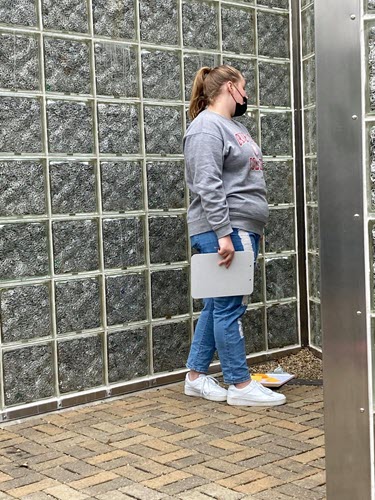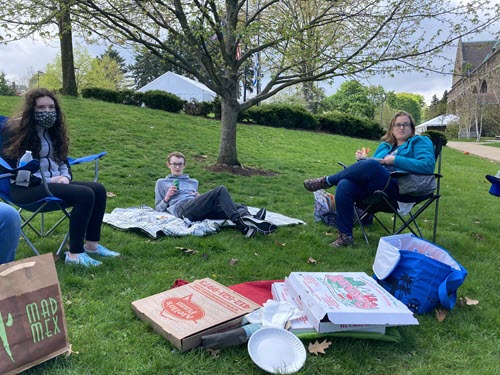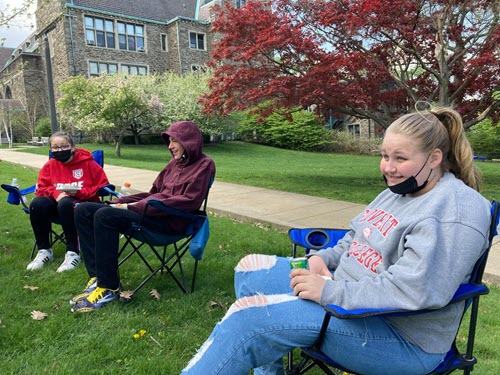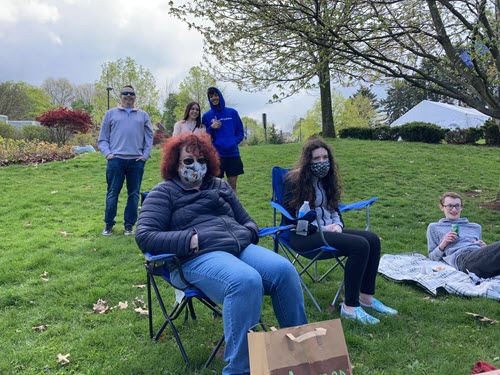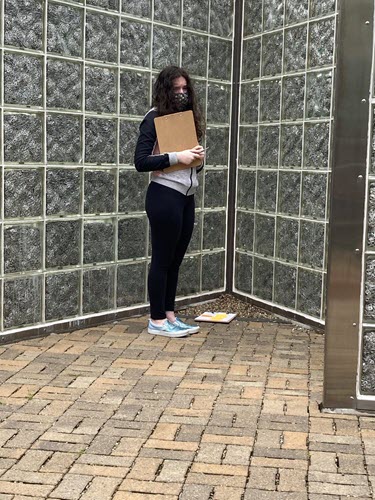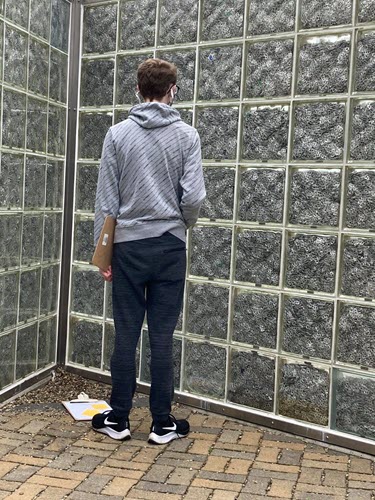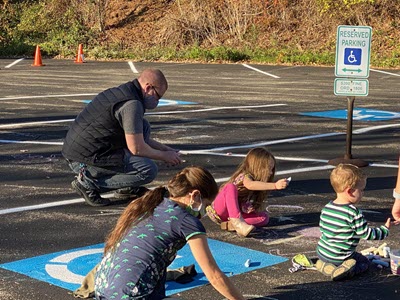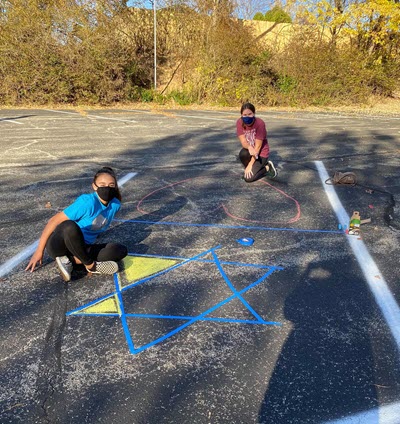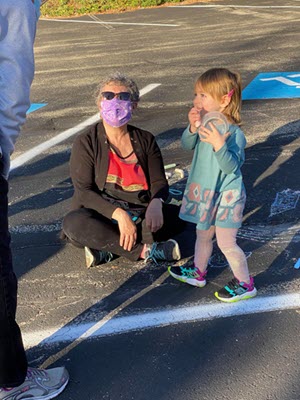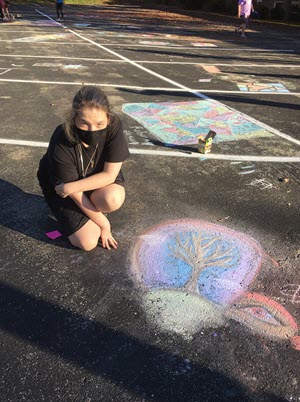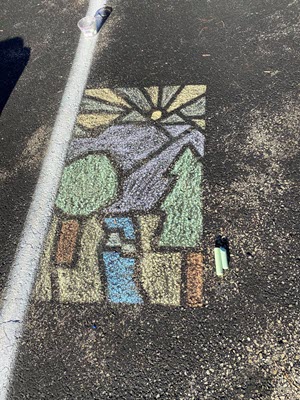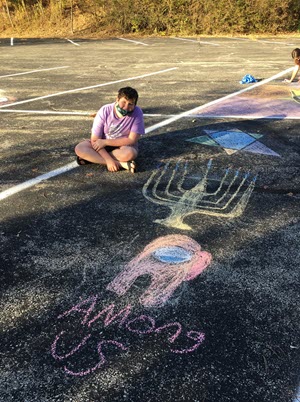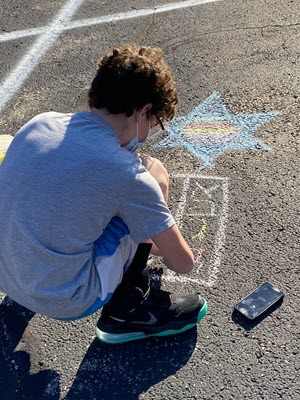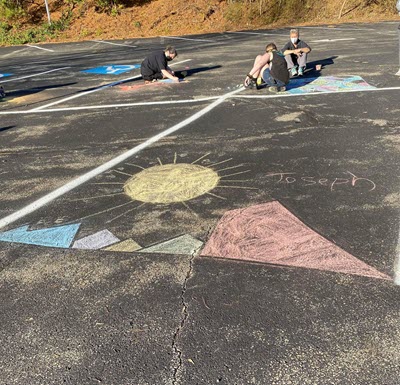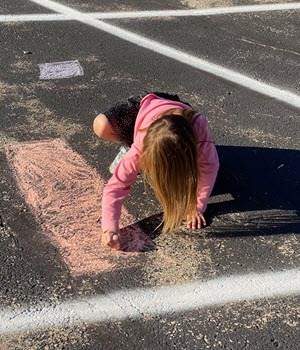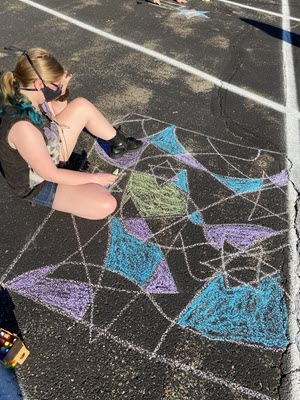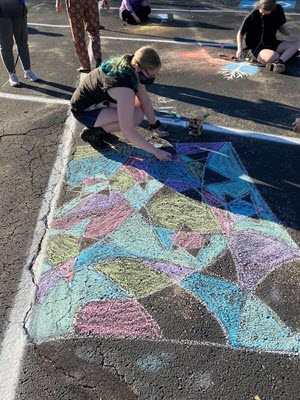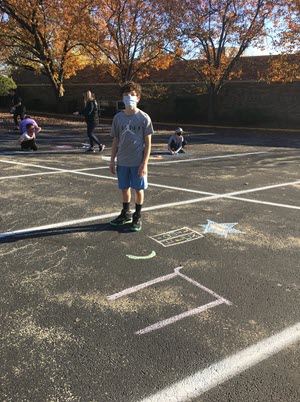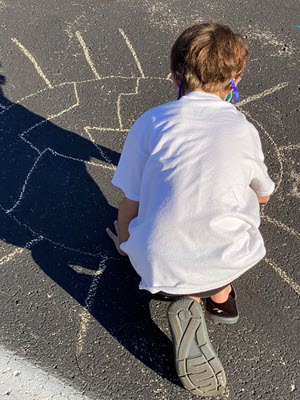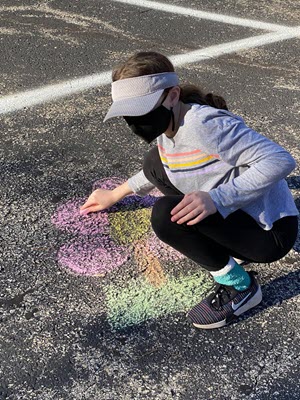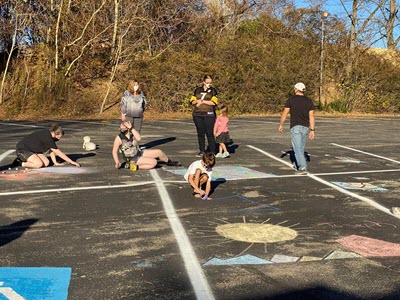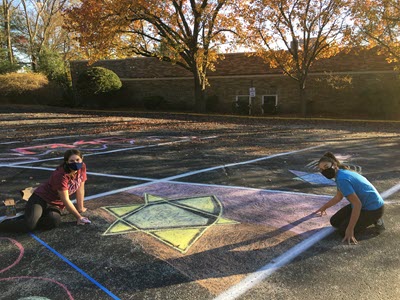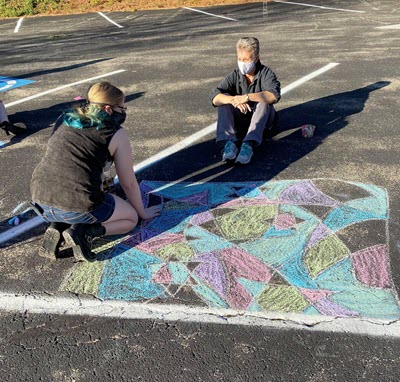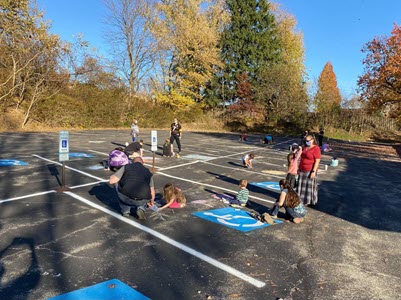
Published June 2021
Weiger School Visit to the
Keeping Tabs Holocaust Memorial
Sunday, April 25
On April 25, our 8-10th graders and some parents went to the Keeping Tabs Holocaust Sculpture at Community Day School in Squirrel Hill. We decided to begin with joy and devoured a Mineo’s-Aiello’s pizza taste test. It was a pretty even outcome.
Then we entered the sculpture and gave the students three minutes of silent time at nine different stations asking questions such as:
Take a full minute to look closely in the glass boxes and take in the enormity of six million people. What is the impact of collecting six million tabs to represent six million Jewish lives murdered?
If you were creating a memorial, would you have a specific focus on righteous gentiles and if so, what would this look like?
This was a school project started by one teacher with one class that grew to involve more classes, the entire community and even the world. Why do you think the teacher and students decided to make this exhibit public?
What would you hope that a non-Jewish person of your age would experience while standing here?
When asked, “How will you never forget,” Gabrielle Keough reflected:
I will continue to teach my children and other people about the Holocaust, and everything about it. Its significance and the impact, and hopefully it will help others feel the way Jews feel about the Holocaust. I will try to treat everyone the way they deserve to be treated, and not make them feel the way that Jews felt.
Published December 2020
Parking Lot Art Project
On Sunday, November 8, The Weiger Religious School turned our parking lot into a gallery of Jewish art. Each artist/student used sidewalk chalk to decorate their own parking space.
Published January 2020
Produce to People
On Saturday, December 7, three Weiger School students, their parents, their teacher, Rabbi Symons and two other Temple David members joined together to volunteer for an organization called Produce to People. This organization strives to get fresh produce to families who live in communities without access to fresh produce. The produce is either donated or purchased in large quantities and then distributed at community events. This organization is part of the Greater Pittsburgh Food Bank. The event that the group volunteered for was at Pittsburgh Faison in the Homewood community.
We met at 8 a.m. in the parking lot at Pittsburgh Faison. Given the cold, as group members arrived, we decided to meet in the Sloan’s van and began the service with the reciting of Ashrei; first by memory and then by iPhone. As more members arrived, the group met inside the building to complete a quick Shabbat service.
The other volunteers arrived including a Girl Scout troop that was also volunteering with us for the day. The food bank trucks arrived and the crates of fresh produce were unloaded. We were then asked to take boxes of sweet potatoes and beets and separate them into smaller bags for distribution.
At 10 a.m., the produce was placed in a line and we began receiving the community that arrived to receive the produce for the day. With smiles on our faces, we were fortunate to have the opportunity to greet and talk to people as we handed them the produce they needed.
The students were asked to reflect on the experience:
“I really enjoyed working with the people. They were very nice and fun to talk with. I didn’t like having to smell the asparagus, but it was a fun experience, and I liked spending it with my family and Temple friends.”—Natalie Keough
“I enjoyed helping the people in the Homewood community. It was fun organizing all of the bulk food with the rest of the group. I also enjoyed passing it out as people came by. The people were very nice and appreciative. I also enjoyed spending time with my mom and my sister.”—Gabby Keough
Rachael Farber also shared her thoughts: “Produce to People is an amazing organization and its so eye-opening to see how many people are so excited to receive their produce. One woman even remarked to me that this is her Christmas produce and that she won’t get the opportunity to get anything else to make her Christmas dinner. This was sad to me as I know how important a Christmas dinner can be for a family and to think that this allotment was all she was getting for December is very sad to me. On the positive side, I am glad this organization exists to provide this food to her and the families that were able to be there that day.”
The day was a great learning opportunity and all involved enjoyed being able to give back to the community and participate in Tikkun Olam.

